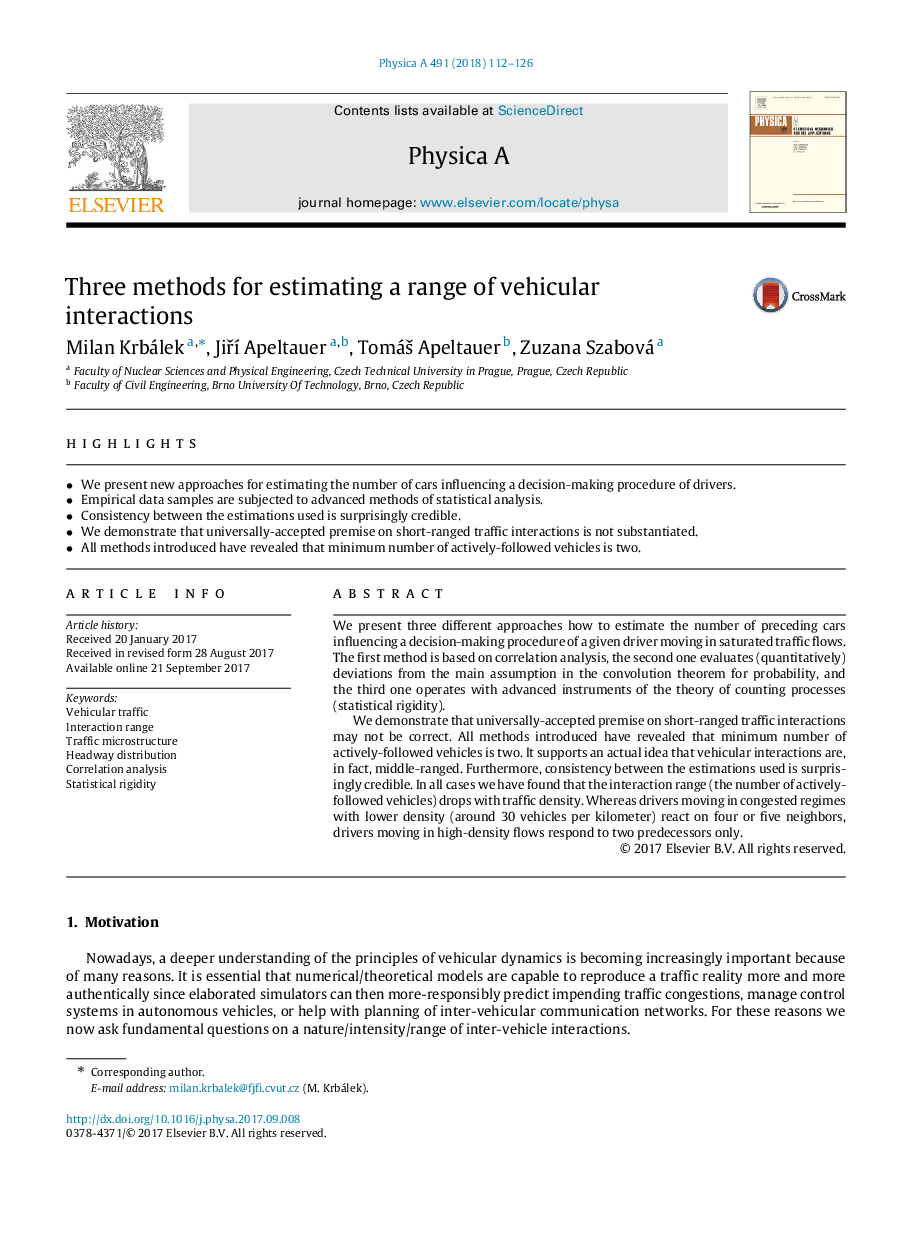| Article ID | Journal | Published Year | Pages | File Type |
|---|---|---|---|---|
| 5102367 | Physica A: Statistical Mechanics and its Applications | 2018 | 15 Pages |
Abstract
We demonstrate that universally-accepted premise on short-ranged traffic interactions may not be correct. All methods introduced have revealed that minimum number of actively-followed vehicles is two. It supports an actual idea that vehicular interactions are, in fact, middle-ranged. Furthermore, consistency between the estimations used is surprisingly credible. In all cases we have found that the interaction range (the number of actively-followed vehicles) drops with traffic density. Whereas drivers moving in congested regimes with lower density (around 30 vehicles per kilometer) react on four or five neighbors, drivers moving in high-density flows respond to two predecessors only.
Related Topics
Physical Sciences and Engineering
Mathematics
Mathematical Physics
Authors
Milan Krbálek, JiÅà Apeltauer, TomáÅ¡ Apeltauer, Zuzana Szabová,
